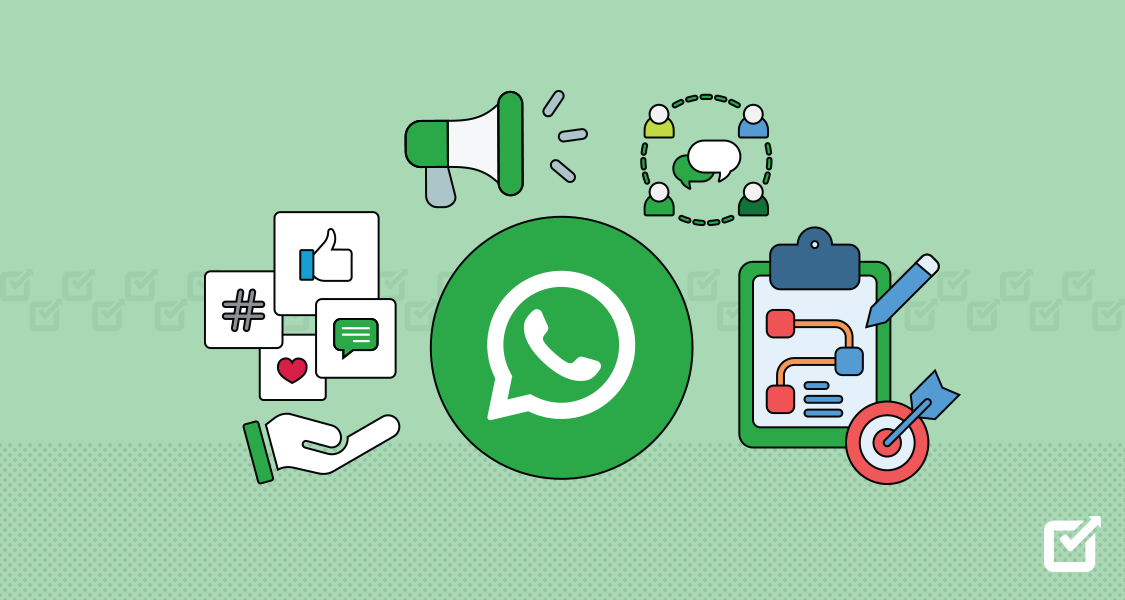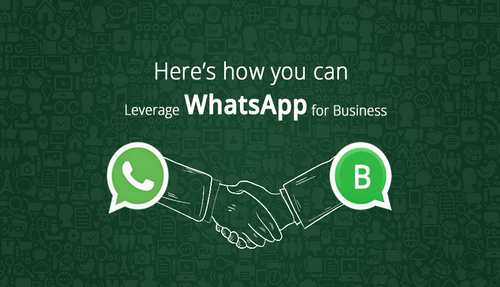
Why WhatsApp Marketing is Thriving in Kenya
Kenya’s mobile penetration rate, exceeding 120% with over 60 million mobile subscriptions, underscores the centrality of mobile devices in daily life. WhatsApp, as a leading instant messaging platform, has become the preferred communication tool for millions, from urban professionals in Nairobi to rural traders in Kisumu. Its low data consumption, accessibility on basic smartphones, and end-to-end encryption make it ideal for business communication. For Kenyan businesses, particularly SMEs, WhatsApp Marketing offers a cost-effective marketing solution that aligns with marketing trends in Kenya in 2025.
The rise of WhatsApp Marketing is also tied to Kenya’s digital transformation. With internet usage in Kenya growing steadily, businesses are leveraging WhatsApp to tap into the informal sector digitization, reaching customers who rely on mobile devices for shopping, communication, and information. The platform’s versatility—supporting text, images, videos, and voice messages—enables personalized messaging that resonates with Kenya’s diverse consumer base.
Key Drivers of WhatsApp Marketing in Kenya
- High Mobile Penetration: Over 90% of internet traffic in Kenya comes from mobile devices, making mobile marketing via WhatsApp a natural fit.
- Affordability: WhatsApp’s low data requirements and free usage make it accessible for both businesses and customers, even in rural areas.
- Cultural Fit: Kenyans value direct, personal communication, which WhatsApp facilitates through real-time customer support and conversational commerce.
- E-commerce Growth: The e-commerce in Kenya market is projected to grow significantly, with WhatsApp serving as a key platform for transactions and customer interactions.
How Kenyan Businesses Are Leveraging WhatsApp Marketing
WhatsApp Marketing is reshaping how Kenyan businesses, especially SMEs, engage with customers. From retail to agriculture, businesses are using the platform to drive customer engagement, streamline operations, and boost customer retention. Below are key strategies fueling the rise of WhatsApp Marketing in Kenya.

- Building Customer Relationships with the Business WhatsApp API
The Business WhatsApp API enables SMEs to scale their business communication efforts. Unlike the standard WhatsApp app, the API allows businesses to automate responses, integrate with customer relationship management (CRM) systems, and manage high volumes of messages. For example, a Nairobi-based fashion retailer can use the API to send order confirmations, delivery updates, or promotional offers to thousands of customers simultaneously.
The API also supports marketing automation, enabling businesses to schedule messages, segment audiences, and track engagement metrics. This is particularly valuable for SMEs with limited marketing budgets, as it reduces the need for manual outreach while maintaining a personalized messaging experience.
- Driving Conversational Commerce
Conversational commerce—the practice of selling products or services through messaging platforms—is thriving in Kenya, with WhatsApp at the forefront. Businesses use WhatsApp to showcase catalogs, process orders, and accept payments via platforms like M-Pesa, which is integrated into the app. For instance, a Mombasa-based electronics retailer might share a product catalog via WhatsApp, allowing customers to browse, inquire, and complete purchases in a single chat.
This approach is particularly effective in the informal sector digitization, where small-scale traders, such as vegetable vendors in Eldoret, use WhatsApp groups to connect with local buyers. By offering a seamless user experience, conversational commerce enhances customer engagement and drives sales.
- Providing Real-Time Customer Support
Real-time customer support is a hallmark of WhatsApp Marketing. Customers expect quick responses, and WhatsApp’s instant messaging capabilities meet this demand. For example, a Kisumu-based agribusiness can use WhatsApp to answer farmer inquiries about seed prices or delivery schedules, fostering trust and loyalty.
Chatbots powered by the Business WhatsApp API further enhance support by handling routine queries, such as store hours or return policies, freeing up staff for more complex tasks. This improves customer retention by ensuring consistent, timely communication, a critical factor in Kenya’s competitive market.
- Leveraging Social Media Integration
While WhatsApp is primarily an instant messaging platform, it complements social media marketing efforts. Businesses can drive traffic from platforms like Instagram or Facebook to WhatsApp for direct engagement. For example, a Nairobi restaurant might post a promotional video on Instagram with a CTA to “Order via WhatsApp,” linking to a dedicated business number.
This integration amplifies digital marketing campaigns, as customers can move seamlessly from browsing to purchasing. It also allows businesses to capture leads and build CRM databases for future personalized messaging.
- Targeting Rural and Urban Audiences
Kenya’s diverse market requires tailored strategies. In urban centers like Nairobi, WhatsApp Marketing appeals to tech-savvy consumers seeking convenience, while in rural areas, it reaches customers with limited internet access but high mobile penetration. For example:
- Urban SMEs: A Nairobi-based beauty salon might use WhatsApp to share promotional codes for hair services, targeting young professionals.
- Rural SMEs: A Nakuru-based farmer could create a WhatsApp group to share updates on fresh produce, reaching local and regional buyers.
This flexibility makes WhatsApp a powerful tool for cost-effective marketing across Kenya’s diverse regions.
Benefits of WhatsApp Marketing for Kenyan Businesses
The rise of WhatsApp Marketing offers several advantages for Keninformal sector digitization, where small-scale traders, such as vegetable vendors in Eldoret, use WhatsApp groups to connect with local buyers. By offering a seamless user experience, conversational commerce enhances customer engagement and drives sales.

- Providing Real-Time Customer Support
Real-time customer support is a hallmark of WhatsApp Marketing. Customers expect quick responses, and WhatsApp’s instant messaging capabilities meet this demand. For example, a Kisumu-based agribusiness can use WhatsApp to answer farmer inquiries about seed prices or delivery schedules, fostering trust and loyalty.
Chatbots powered by the Business WhatsApp API further enhance support by handling routine queries, such as store hours or return policies, freeing up staff for more complex tasks. This improves customer retention by ensuring consistent, timely communication, a critical factor in Kenya’s competitive market.
- Leveraging Social Media Integration
While WhatsApp is primarily an instant messaging platform, it complements social media marketing efforts. Businesses can drive traffic from platforms like Instagram or Facebook to WhatsApp for direct engagement. For example, a Nairobi restaurant might post a promotional video on Instagram with a CTA to “Order via WhatsApp,” linking to a dedicated business number.
This integration amplifies digital marketing campaigns, as customers can move seamlessly from browsing to purchasing. It also allows businesses to capture leads and build CRM databases for future personalized messaging.
- Targeting Rural and Urban Audiences
Kenya’s diverse market requires tailored strategies. In urban centers like Nairobi, WhatsApp Marketing appeals to tech-savvy consumers seeking convenience, while in rural areas, it reaches customers with limited internet access but high mobile penetration. For example:
- Urban SMEs: A Nairobi-based beauty salon might use WhatsApp to share promotional codes for hair services, targeting young professionals.
- Rural SMEs: A Nakuru-based farmer could create a WhatsApp group to share updates on fresh produce, reaching local and regional buyers.
This flexibility makes WhatsApp a powerful tool for cost-effective marketing across Kenya’s diverse regions.
Benefits of WhatsApp Marketing for Kenyan Businesses
The rise of WhatsApp Marketing offers several advantages for Kenyan businesses:
- Cost-Effective Marketing: Unlike traditional advertising, WhatsApp campaigns require minimal investment, making them ideal for SMEs with limited budgets.
- Personalized Messaging: Businesses can tailor messages to individual customers, increasing relevance and engagement.
- High Engagement Rates: WhatsApp messages have open rates exceeding 90%, far surpassing email or SMS.
- Scalability: The Business WhatsApp API enables businesses to manage thousands of conversations, supporting growth without compromising user experience.

Challenges and Solutions
Despite its benefits, WhatsApp Marketing comes with challenges:
- Privacy Concerns: Customers may hesitate to share personal information. Businesses must adhere to data protection regulations and use opt-in consent for messaging.
- Message Overload: Bombarding customers with messages can lead to disengagement. Marketing automation tools can help schedule messages strategically.
- Technical Expertise: SMEs may lack the skills to use the Business WhatsApp API. Partnering with local digital agencies or using user-friendly platforms like Wati can bridge this gap.
The Future of WhatsApp Marketing in Kenya
As marketing trends in Kenya evolve, WhatsApp Marketing will continue to grow in 2025. Key trends include:
- AI-Powered Chatbots: Advanced chatbots will enhance real-time customer support, handling complex queries and personalizing interactions.
- Integration with Payment Systems: M-Pesa and other mobile payment platforms will deepen conversational commerce, streamlining transactions.
- Video and Voice Messaging: With increasing demand for rich media, businesses will use video and voice messages to showcase products and engage customers.
The informal sector digitization will also accelerate, as more micro-entrepreneurs adopt WhatsApp to formalize their operations. For example, a street vendor in Dandora could use WhatsApp to take orders for fresh produce, competing with larger retailers.
Measuring Success in WhatsApp Marketing
To maximize customer retention and digital transformation, businesses must track key metrics:
- Engagement Rates: Monitor open and response rates to gauge campaign effectiveness.
- Conversion Rates: Track how many WhatsApp interactions lead to sales or bookings.
- Customer Feedback: Use polls or surveys within WhatsApp to gather insights on user experience.
For instance, a Mombasa-based tour operator could analyze WhatsApp inquiries to identify popular travel packages, refining their digital marketing strategy accordingly.
Conclusion
The rise of WhatsApp Marketing in Kenya is a testament to the country’s digital transformation and the power of mobile marketing. By leveraging instant messaging for personalized messaging, real-time customer support, and conversational commerce, Kenyan businesses are redefining customer engagement. For SMEs, WhatsApp offers a cost-effective marketing solution that bridges urban and rural markets, driving e-commerce in Kenya and supporting informal sector digitization. As marketing trends in Kenya evolve in 2025, businesses that embrace WhatsApp Marketing will lead the charge, building stronger connections with customers and securing a competitive edge in the dynamic digital landscape.